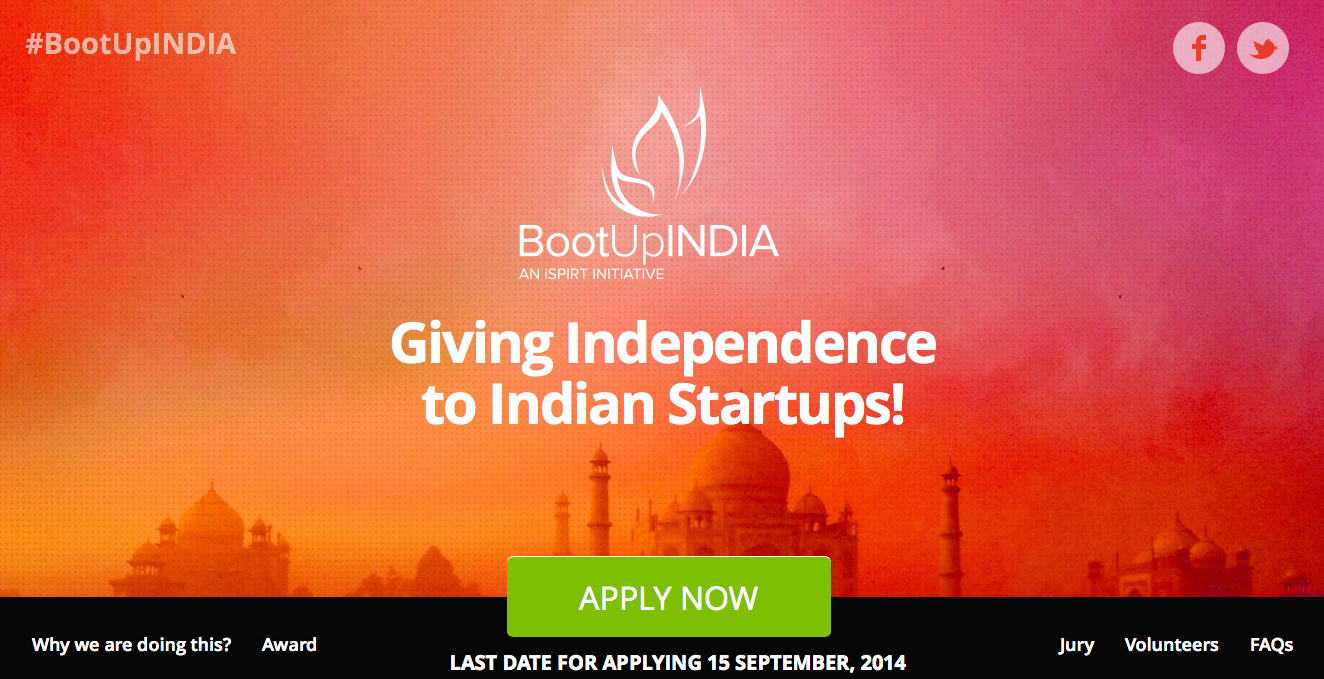Getting up at 4am in the morning and discovering 200 founders lined up at Madiwala, to catch the bus before the scheduled departure, instantly reminded me of the huge line of techies in front of the American Consulate at Annasalai for my H1B visa, two decades ago 🙂
What a transformation India has gone through!! I have no doubt in my mind that India has started a new innings and is steadily transforming into a Product Nation.
Finding Your North Star
Day One was all about defining the Vision, Goals and the Scope of our respective companies. Aaron Chatterji, from Duke, started with this analogy “Finding Your North Star” – which is about identifying that one thing that will give you direction when you are lost in the middle of nowhere. He then, conversed with Pallav, from FusionCharts, on his “North Star”; which was then extended to an elaborate discussion on why it is important to manifest a sustainable belief statement and focus hard to keep things open and adapt to environmental changes that may occur in the future. Pallav further elaborated this with a few examples. I will pick one of them – Adobe believes that they will help people create digital assets and publish them in an easily and creatively. Twenty years back, it was consumed by DTP(Desktop publishing) centers, then web design, and now it’s digital marketing. But with all the changes that happened over the past twenty years, their belief statement still aligns with what they do!
Then, it was time for an “empathy interview” – where two founders interviewed each other in turns. Here, we tried to put ourselves into the other person’s shoes and see how we can help the other side to discover and/or realise things that he/she can’t see otherwise. If you care for someone, then you won’t be afraid to be brutal in your opinions, and that helps the person you care. So, the intent of this exercise was to get brutal, if required, and make the other person realise what they have not realised till date. On day one, everyone got tensed with all the harsh feedback from mentors like Sharad Sharma and Kunal Shah; as both of them did their best to convey the message to all the participants – that they are here to become the category leaders in their space. I guess the intent was to ignite that fire, and make participants realise they need to get their act together, if at all they want to become the category leaders in their respective spaces. You could see that people went to bed with long faces 🙂
Unfair Advantage
Day two was about discovering our unfair advantages and leveraging the ecosystem.
Aaron Chatterji from Duke started the day with beautiful remarks and helped people understand the semantics of “Unfair Advantage”. Sharad Sharma took the stage and in his usual style asked people who they are taking a “Panga” with, he then gave a case study of Sridhar Vembu from Zoho and quoted him (from the NASSCOM Emergeout event 2009), “watch out guys, I will be coming with products, which will take away your business!” Then Sharad was in the fact-taking “Panga” with all the service companies in the Indian software ecosystem. And now, Zoho is the leader in it’s space. So the message was very clear – if you want to become a category leader in your space, you have to take a “Panga” with someone, you have to disrupt somebody, it may be a company or a system, but you have to take a “Panga” and Sharad was aggressive while saying this.
Then Shankar Maruwada took the thread and asked the participants to travel to the future, and assume that Forbes India has just listed them as a part of the ‘Top 100 Richest Indians’ and asked everyone to list out the unfair advantage that helped them become successful. Participants were given 5 minutes… you could feel 200 entrepreneurs churning inside the cores of their body and mind and it was indeed a powerful realisation. The mentors were visibly happy that the participants were putting in real effort to discover themselves, with tools provided to them. Aaron then spoke about various resources and capabilities that could be potential advantages to the entrepreneurs, and then we all carried out the exercise of identifying the “dhobi list” of all possible resources and capability that work as an advantage to our businesses. Then, we slowly filtered the list using a few parameters like ‘valuable’ and ‘can’t be copied.’ We did a few more exercises to identify the top two or three unfair advantages, that help us be a category leader. Later in the day, we went through another critical aspect, where we went through a bunch of worksheets to identify our IPO (Information, People, Organization) that can potentially help us become category leaders. IP Framework is a very powerful tool which enables entrepreneurs to leverage the ecosystem, while building powerful companies and creating substantial value. The second day was very satisfying, and I saw many gratifying faces during dinner time. The Infosys Campus was beautiful and green, but there was no place to hangout and have bonding sessions and fun with fellow entrepreneurs ; so, a bunch of us went out to a local pub, and to our surprise they arranged a campfire and we had loads of fun. We discovered two spontaneous and outstanding stand up comedians, who can make you laugh till you drop !!!
Action Plan
Day three was about creating an action plan and refining it via ‘SharkTank-style grilling’ interviews with mentors. Aneesh Reddy from Capillary was at his usual best in sharing how to grow, how to focus on things that matter today, and then derive an action plan accordingly. Everybody was asked to create a “laundry list” and then continue eliminating till they were left with the top two action items. The Sharks (Mentors) then picked a few entrepreneurs they wanted to grill. It was more like the “empathy interview” we did with fellow entrepreneurs. The intention here was to ensure that each one of us were made aware of the tools we had in hand to go fight it out, and increase our chances to become category leaders. Through all three days there were mentors and coaches all around us, who were helping entrepreneurs brainstorm and refine their gameplan to win, and win profoundly. It was a life changing event for many, including me, here are three essential things that I learned:
- Have a sustainable belief statement with focus on function, so it will be easy to evolve and adapt to environmental changes that may occur in the future
- Having a strong disagreement is not enough, take a “Panga” with whoever (company or system) you are disrupting
- To take a “Panga”, you need to have tools; so identify your ‘Unfair Advantage’ (read as Brahmastra)
It was a great experience for me and it was wonderful to see people like Phanindra Sama, Aneesh Reddy, Shankar Maruwada and other mentors going out of the way in helping the entrepreneurs.
Folks at work @PNgrowth #pngrowth pic.twitter.com/0cgLRLYIBc
— Ankur Agarwal (@annkur) January 9, 2016
I have also attempted to capture some experiences from fellow entrepreneurs –
Harshit Agarwal from Appknox: We are too busy in building our business and we don’t get enough time to come out of that loop and think from outside about where are we heading and what is our vision. PNGrowth helped us realise that we need to have a proper plan and we need to know our unfair advantages and make a growth plan accordingly. Mentors, who had gone through this journey and built successful companies shared their experience and worked one-on-one with us to make an impact. For sure, a majority of us came back with a proper executable plan to make sure we are category leaders in our space.
Suneil Chawla from Influencer.in: PNGrowth was a one-of-a-kind experience – having 200 fellow founders and some very successful founders like Kunal from FreeCharge, Anish from Capillary, Phani from Redbus – all spending time together over a weekend with only one goal: creating category leaders who innovate and have an unfair advantage against other players in their chosen markets. Personally, it really helped us to get valuable inputs and feedback from 20+ founders and nearly 10 startups keen to launch ‘Influencer marketing’ campaigns. We also had a bunch of startup founders from Chennai and I’m sure we will continue our new friendships. Sharad and the entire Product Nation team drove this fabulous initiative as volunteers – we definitely need more such initiatives to become a Product Nation.
Paul Mathews from nethram.com: This was no ordinary conference or workshop. We got the taste at the end of the first day, when Kunal (Freecharge) and Sharad (iSPIRT) did not mince words, and told us that we have to call each off other’s ‘BullShit.’ The mood shifted from then on. Becoming a category leader is not easy; you need an unfair advantage; need to take a panga (fight) with a leader; and need to stay focused on an action plan for 10x growth. This was no ‘feel-good’ seminar. Calling this a BootCamp is an understatement.
Jaineel Aga from Planet Superheroes: 3 days of a turbo charged environment, where entrepreneurs from all walks of life had only one thing on their mind – Displace the incumbent, take the “panga” and not settle for mediocrity. With solid frameworks backed by academic research by professors of Entrepreneurship from Duke and Stanford, and corroborated by real life learnings from arguably the best in the business, this program and experience over three days would outshine most “entrepreneurship” programs in business schools. After 3 days, I have been left with a razor sharp vision for our business, solid framework and metrics to track and lastly, the one that I value most – a network of 200+ entrepreneurs and industry mentors whose support, feedback and bonhomie will be the necessary fresh air while traversing the circuitous and lonely journey to the top.
Osho Sidhant from craftemporio.com: We get so busy doing things that we forget to check if we are doing things which will bear fruits. In the life of an entrepreneur, it is critically important to do only the right things because resources are limited and every wrong step potentially takes you behind in terms of time. PNgrowth was an event which has trained our minds to run in the right direction. For the three days at the bootcamp, we were compelled to rethink our strategies and what it will take to be a category leader. The talks of seasoned entrepreneurs like Phani, Kunal, Aneesh, Pallav further let us know the highs and lows of entrepreneurship, and to keep our minds and hearts at peace.
Ravi Datanwala from AppICE.io: The best investment for any founder aspiring to be a category leader and taking a #panga with the incumbents. Knowledge sharing by those who have been there and done that and how they did it – was very insightful and helped me make the necessary corrections in our planning and execution. It helped train our mind on how we should be razor-focused on the short term goals to get to the next innings, whilst building the right long term goals for our success. Do #epicshit and learn to say NO. The best way to say thanks to all the organizers and program mentors would be to put the learnings into action and show them how you are on the path to becoming a category leader and being a part of the Product Nation.
Ajay Chanam from halfsteprock.com: PNgrowth will prove a game changer for not only the companies that participated and benefitted through its extensive learning program, but also for India as a whole in terms of our ability to produce the next wave of innovative companies. While PNgrowth evidently seeks to help the first 200 startups, it also lays precedent for ‘Paying it Forward’ and companies will do it happily having experienced its power – first hand. The conventional mindsets are at the cusp of being torn apart, paving way for a transparent entrepreneurial eco-system and while companies will continue competing with each other, the new ecosystem will empower the better company to win and make the playing field more equitable for the Davids of the world (against the Goliaths of the world). It was one such experience for me – an experience of a lifetime, absolutely. I will never be the same, Half Step Rock will never be the same, and the world will never be the same going forward. So, get your gear, set the stage, check the sound. There are Rock Stars from every part of India who are now only waiting to be found!
Sarang Lakare from InTouchApp.com: Someone rightly said, if you want to make a great dish, you need to mix the right contents in the right amounts. PNGrowth was one such great dish, a delicacy if I may call it that, perfected by some of the most experienced Chefs from Stanford, Duke, and the Indian product ecosystem. When you give such a dish to 200 startup founders, you are bound to get healthy product startups out of it! One day, we all hope to make these Chefs proud for what they created for us.
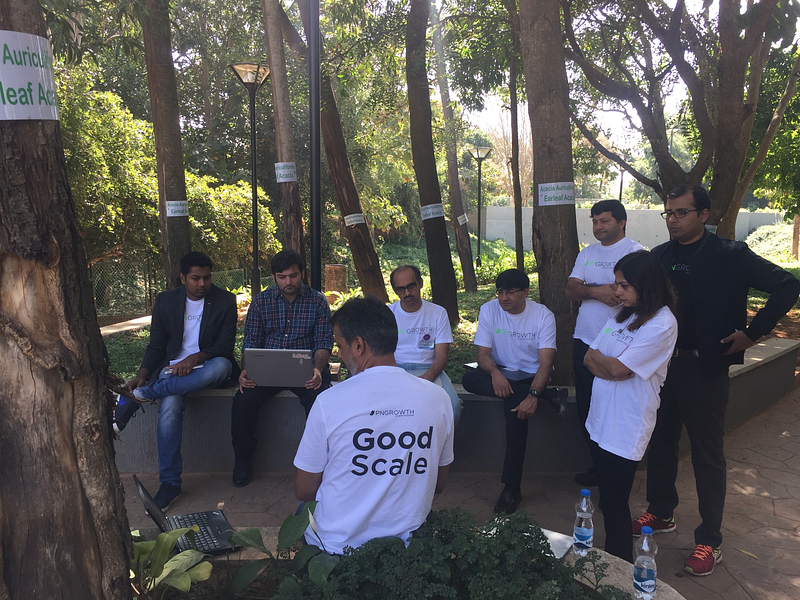
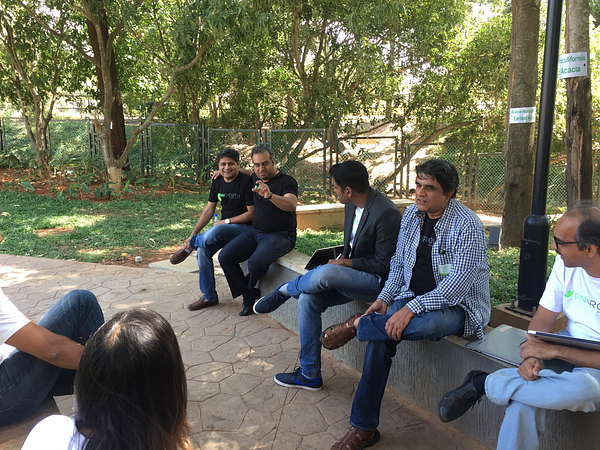
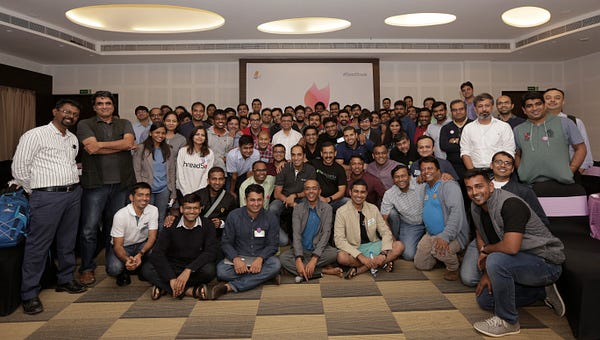
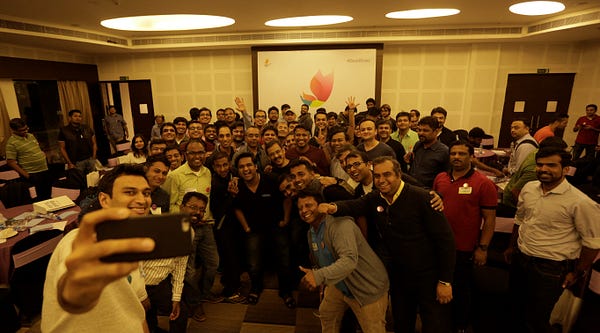
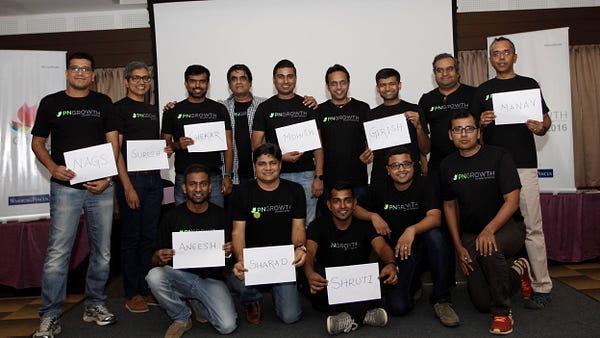



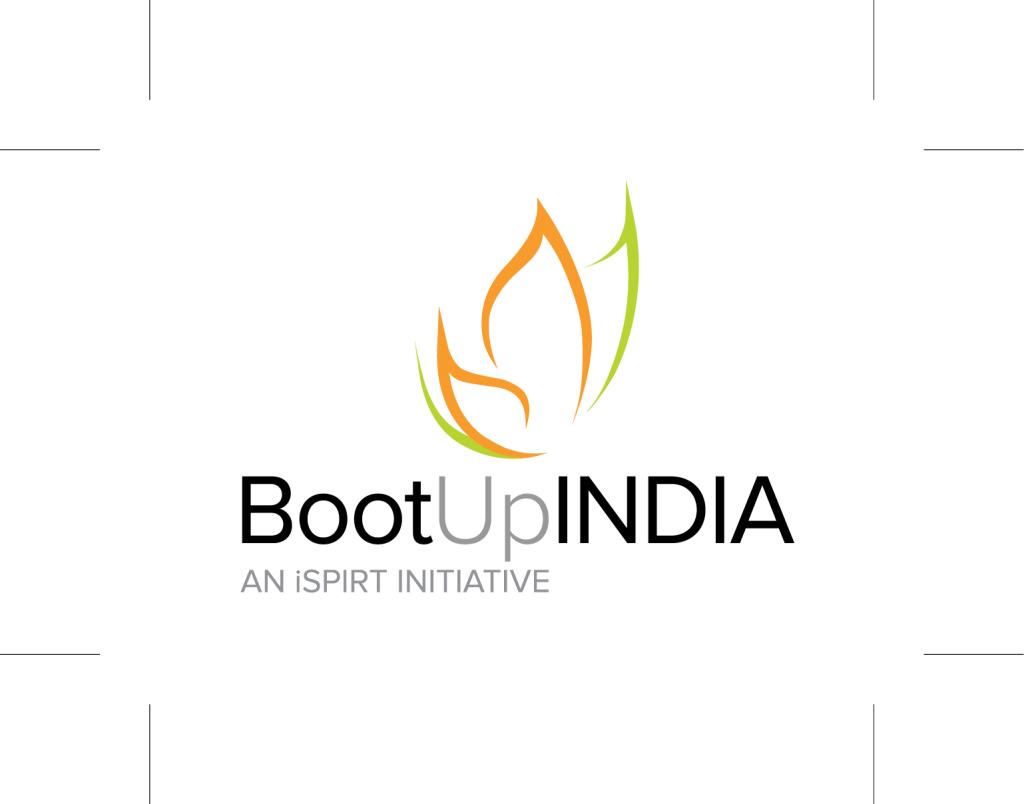 Before I share the 8 selected companies, I want to tell the applicants that didn’t make to the Inner Circle this time that there will be more opportunities to get included in the coming year(s). BootUpINDIA is an ongoing program that will expand the Inner Circle over time. We are also organizing a Bootstrap Summit for the applicants and will be profiling all the applications on the on the
Before I share the 8 selected companies, I want to tell the applicants that didn’t make to the Inner Circle this time that there will be more opportunities to get included in the coming year(s). BootUpINDIA is an ongoing program that will expand the Inner Circle over time. We are also organizing a Bootstrap Summit for the applicants and will be profiling all the applications on the on the 